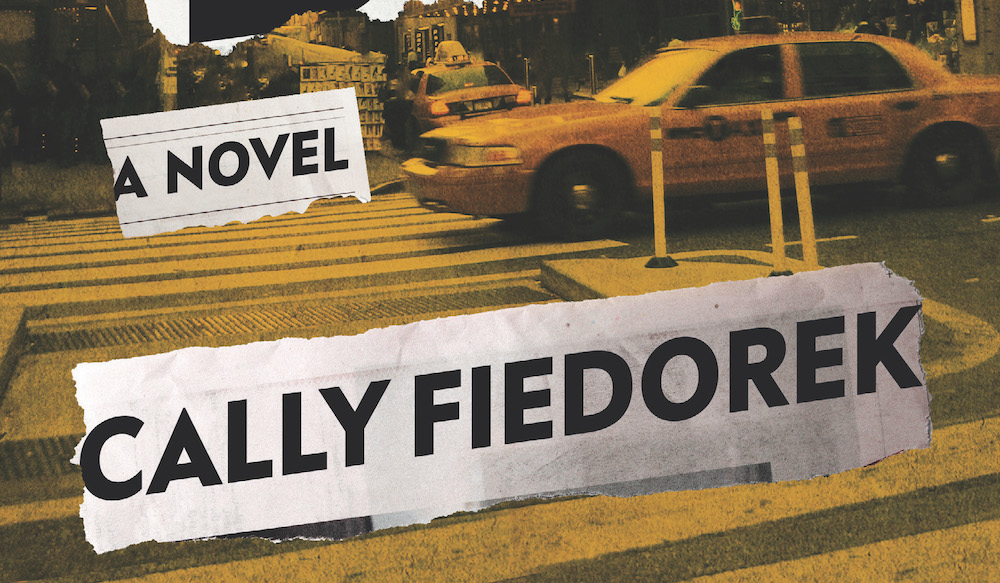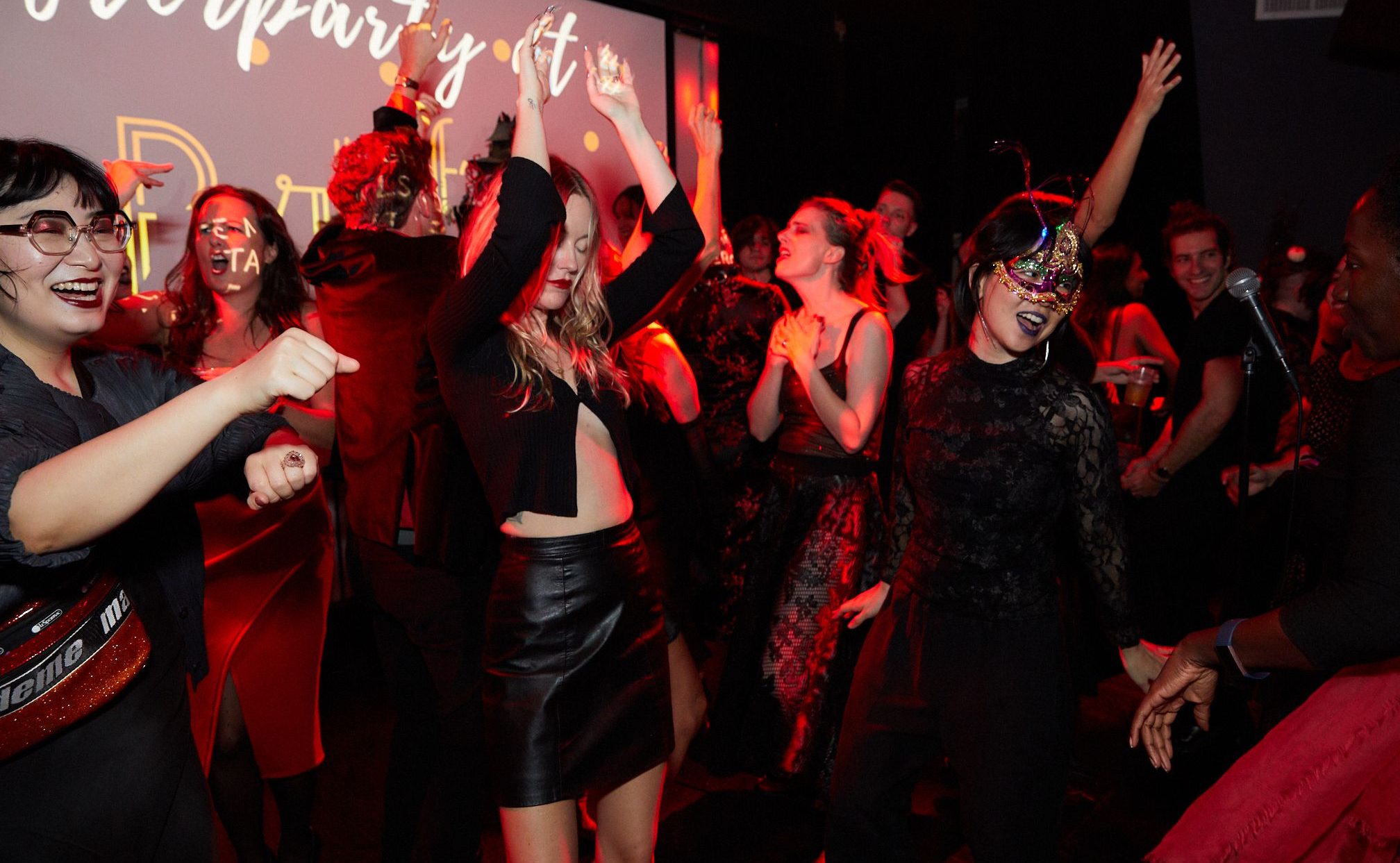interviews
Birth of the Cool: Italian Expats in Brooklyn
Francesco Pacifico on Williamsburg expats seeking style & grace

Class (Melville House) is a hell of a book. It’s a big, sprawling story that wanders up and down Manhattan, Brooklyn, and Rome, with some detours to a Catholic youth camp and the afterlife. It’s about money and upward mobility and everything you’d expect from the title, but it’s also about sex and God. There’s a lot of God in this book — which makes sense, given that the author, Francesco Pacifico, is a practicing Catholic and a lapsed theologian.

His last novel, The Story of My Purity, was all about God too. There are lots of gods in Class, though. Plenty of the characters are devout Catholics — and the ones who aren’t are devout Marxists — but the presiding deities are Jay-Z and Kanye circa Watch the Throne, which most of the characters are obsessed with. And then there are characters who worship publishing houses, or record deals, or Louis Vuitton. Reading Class can feel like watching a music video (granted, there’s a scene in which several of the characters film one) or flipping through a Vogue editorial — it’s beautiful, and luxurious, and you don’t know what the hell is going on. That’s all right. This is a novel to let wash over you, to take in, to accept that you can’t master. Of course it is. Pacifico wrote it from life. There’s no mastery here.
Lily Meyer: Let’s start by talking about cool. Am I right in thinking that this is primarily a book about cool?
Francesco Pacifico: You’re right. Cool in the face of aging. I sold the apartment where the book is set, and I went to pick up my things the week of the book launch. And I was thinking yesterday — my gastroenterologist told me I had to quit drinking, and I thought, Class was written on the other side of losing the apartment and losing drinking. So I’ve aged even more since the book started.
When it started, I was thirty-five and I knew no twenty-five-year-olds. But the idea of the book was that there’s no need to work, since there are no jobs. I wasn’t doing much, but my cousin, who decided not to study literature because he wanted a real job, was an engineer, and he made less than I did at the time. I wanted to write about that, so I had to get into the Roman hipster scene and meet all the stand-up comedians and pop artists. For them, hustling to become a pop artist is like hustling to become a lawyer. It’s the same. So I wanted to write about that.
Also, I’d started going to New York, and I wanted to write about New York. I wanted to write about the fact that everyone was drinking their own Kool-Aid and no one could see the city as a generator of myths. There was Williamsburg cool, Lower East Side cool, et cetera — and the Balzac in me started thinking, New York is perfect to play with cool.
LM: There are a lot of people making art in Class, but none of them are very good at it. Or at least, they’re not good at it yet. Was that hard to write about?
FP: I will eventually feel confident enough to write about a good artist, but I can’t do it now. I don’t want to jinx my process. There’s this fancy TV station here, and I was invited on a show there, and these two great-looking people in their early twenties were interviewing me about Class. They said, “How does it feel since you’ve made it?” and I grabbed my balls with my left hand, which is an anti-jinx procedure in southern Italy. The whole moment, people talking about success — it really freaked me out. It’s something you should never mention. It’s so fleeting.

LM: Another thing that seems incredibly hard to me in this novel is writing the narrator, who is omniscient, and also dead. Why is she dead?
FP: I have a lot of thoughts about the relationship between what purgatory is for Catholics and what fiction is for Catholics. There’s a fake Polish theologian in this book, and he says that purgatory for the Church is a purifying fire that prepares you for heaven. So I was thinking, language is something that’s like a fire, because it has no weight, but it’s strong. And then I thought, if I want to play with the Catholic mind, what if writing a novel is like confessing to a sin? What if the language purifies you? So the narrator is someone who’s atoning.
Other than that, she had to be a woman and she had to be a Marxist. I don’t know why a woman, but for me, you cannot have the Catholic church without Marx, or Marx without the Catholic church. Also Freud. Freudian analysis made me a real Catholic. Before, I was in the Church, but I couldn’t listen to other people.
“I have a lot of thoughts about the relationship between what purgatory is for Catholics and what fiction is for Catholics.”
LM: What’s the relationship between those three things for you?
FP: No one in the Church ever talked to me about class. I have a very sophisticated mother and a very smart father, but they grew up inside the Church, and their lack of sophistication about a lot of things is fascinating. I know so much about the 21st century that they don’t. At the same time, you can’t be a Marxist and enjoy being a Marxist too much. That’s what happens to non-Catholic people. They think Marxism is like the fountain of youth, but Marxism should be a way to portray society and relationships. We need more down-to-earth, lame Marxist thinking. Day-to-day, compassionate Marxism.
And then the Freudian part. When I started going to psychoanalysis to fight my panic attacks, I realized that psychoanalysis was the pinnacle of Western civilization. It gives you a center from which to be able to love — in a Christian sense, I mean. In the sense of substituting empathy for charity. I could never be empathetic before psychoanalysis because I was raised in a place where having an emotional center wasn’t considered part of Catholic life. You ended up doing all these sort of psycho-financial speculations: what are my actions for? Am I helping people? Doing that without a center, you just make a mess.
LM: Speaking of messes, let’s talk about translation. First, it seems to me that there’s a lot of cultural translation in Class. Do you expect readers to understand the culture of this book completely?
FP: I’m fighting a battle against perfectionism. You can’t write about a place if you know everything about it, because how could it be fascinating? Same with reading. When I was fifteen or sixteen and reading Kerouac, I didn’t know about bebop. But I started listening, and it blew my mind. See, culture is a journey. It’s important to be attracted to something you don’t know. That’s how you get somewhere, but you’re always getting somewhere. You’re never there.
“See, culture is a journey. It’s important to be attracted to something you don’t know. That’s how you get somewhere…”
LM: Finally, you translated this book yourself. What was that like? No one translates their own work!
FP: Since this is a book about the way Italians experience American culture, there was a lot of English in the Italian version. I wanted to make the point that if in the 20th century, Italian writers had to combine regional dialects with Italian, now we have to combine English with Italian. I can’t play with dialects, because I was raised by people who didn’t speak in dialect. I can only play with English. But the translation was a very painful process. I changed the book too much. God, let’s stop. I’m starting to remember when I translated the book, and it’s too painful. I don’t know if I could do it again.
The Brazilian Novelist Who Inspired Borges, Márquez, and Amado









